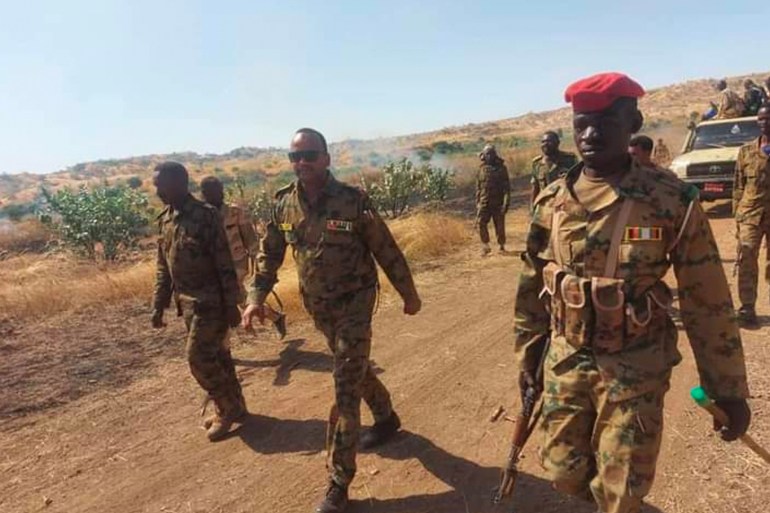Acting Sudanese Foreign Minister Omar Qamar al-Din ruled out any war between his country and Ethiopia, after Addis Ababa confirmed that it refuses to negotiate with Sudan unless it withdraws its forces from the positions it seized on November 6.
The Sudanese minister added, during a press conference with his British counterpart Dominique Raab, who is visiting Khartoum, that Sudan does not see a problem on the border with Ethiopia.
He said, "We talked about the issue of the border between Sudan and Ethiopia, and Sudan does not see that there is a problem on the borders with Ethiopia, which are borders that were drawn under the supervision of Britain in 1902, and the maps themselves were used to demarcate the borders in southern Sudan. The same thing happened upon the independence of Ethiopia."
And he indicated that Khartoum is working through diplomatic means and securing negotiations to resolve the outstanding issues, so that we have an agreement to demarcate the borders, expressing his hope that the stage for the filling of the Renaissance Dam will not be completed for a second without agreement between all parties.
Gamaruddin said that the Sudanese government is interested in resolving its differences with the Ethiopian neighbor in an amicable and peaceful manner, and there is no talk of any war.
British Foreign Secretary: Britain wants a settlement of the crisis that is suitable not only for the two countries, but for the entire region (Anatolia)
Crisis fuse
Regarding the border crisis existing between Ethiopia and Sudan, the British Foreign Secretary called for defusing the crisis, given the unstable conditions in the region.
He revealed that he would carry a message from the Sudanese foreign minister to Ethiopia, and said that Britain wanted a settlement of the crisis that would be appropriate not only for the two countries, but for the entire region.
"We have an old friendship with Sudan, as well as a strong partnership with Ethiopia," he said. "Our message is, let us not see an escalation of tension in these unstable conditions that the region is passing through, and let us defuse the crisis."
Members of the Sudanese army in the state of Al-Ghadaref, which borders Ethiopia (Sudanese Press)
Refuse to negotiate
Earlier, Ethiopian Foreign Ministry spokesman Dina Mufti said that his country rejects any negotiation with Sudan unless it withdraws its forces from the sites it seized on November 6.
The Mufti denied the existence of any agreement between the two countries for the entry of Sudanese forces into Ethiopian lands, explaining that "what was agreed upon between the two countries is controlling the borders and preventing any movement of anti-peace forces within the borders of the two countries."
The Mufti also confirmed his country's refusal to link the Renaissance Dam to the border crisis with Sudan, and said that the dam is beneficial to the Sudanese people, and that the second mobilization will be on time.
For his part, a member of the Transitional Sovereignty Council in Sudan, Siddiq Tower, said that Sudan will not respond to any mediation that talks about a dispute over the border between Sudan and Ethiopia.
Tower stressed - in a speech in South Kordofan - that his country will not give up any Sudanese land, denying the existence of a border dispute between Sudan and Ethiopia.
Fight a war
The President of the Sovereignty Council, Commander-in-Chief of the Armed Forces in Sudan, Abdel Fattah al-Burhan, said that his country does not want to go to war with Ethiopia or any other country, but it will not give up an inch of its territory.
In a meeting with the army commanders, Al-Burhan stressed Sudan's desire to reach an agreement that preserves its legitimate rights and that the border markers would be drawn.
The borders of the two countries witnessed several remarkable developments that were sparked by an armed attack against a Sudanese army force in Mount Turia (east) in mid-December.
Khartoum says that "Ethiopian militias" seize the lands of Sudanese farmers in the Fashaqa area after they were expelled from it by force of arms, accusing the Ethiopian army of supporting those gangs, which Addis Ababa denies and says that these groups are outlaws.

